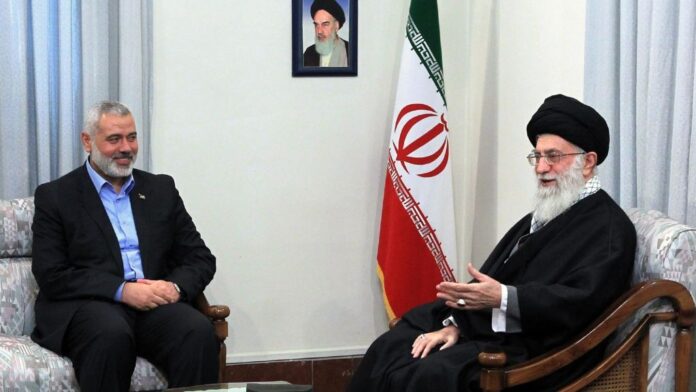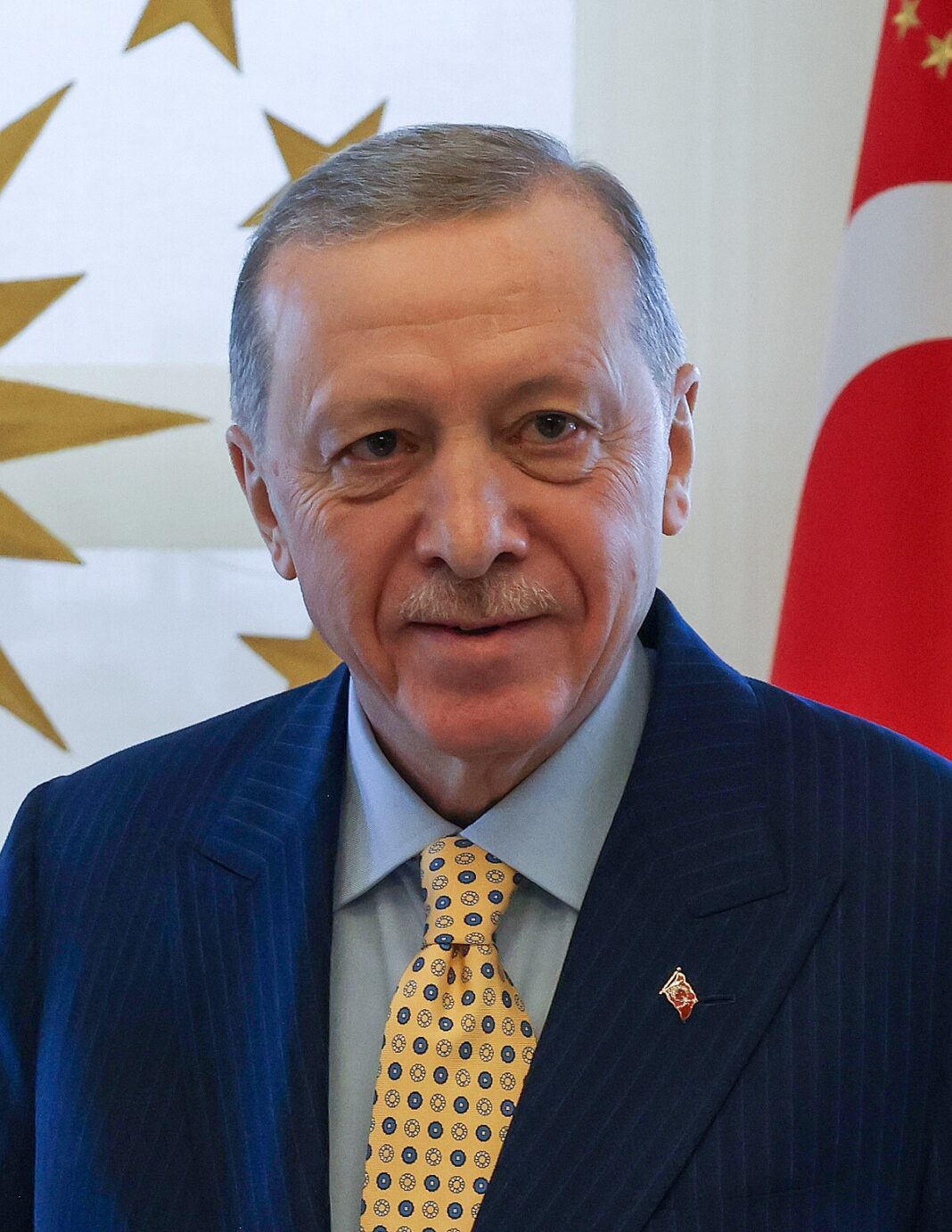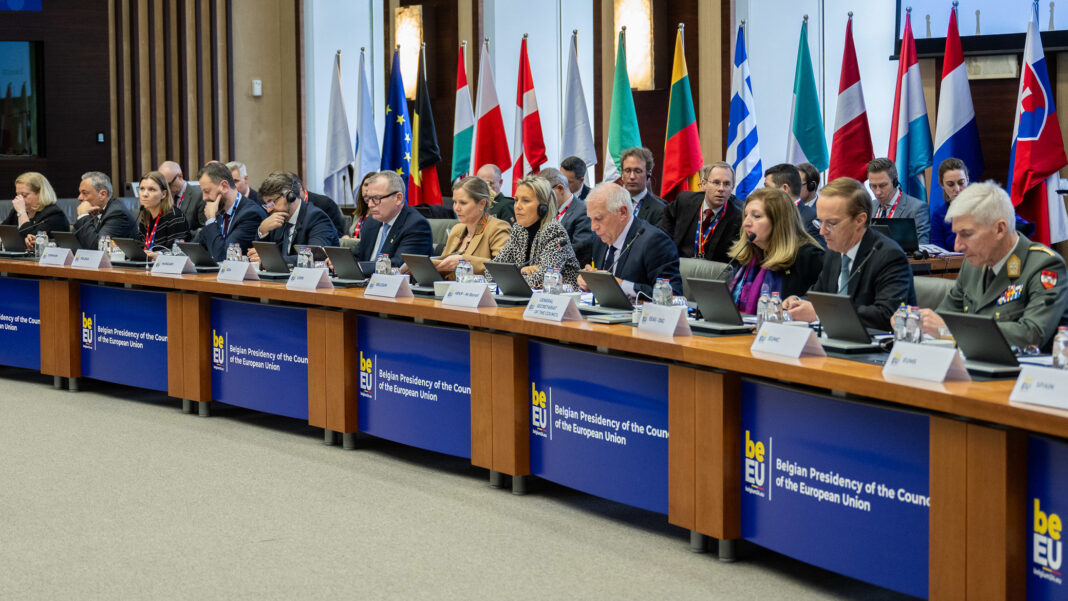In a matter of weeks, Israel could conclude its ground offensive in southern Gaza. Talk in Western capitals has already turned to the “day after”—what will be needed to rebuild Gaza. Meanwhile, Iran will be focused on rebuilding Hamas and preparing for the next war. If Israel and its allies aim to prevent a repeat of the Oct. 7 attack, they must counter Tehran.
The U.S. and Israel have faced this scenario before. In July 2006, the Lebanon-based terrorist group Hezbollah, Iran’s favorite proxy, attacked Israel in an operation that resembled Oct. 7 in miniature (including the kidnapping of two Israeli soldiers). Jerusalem’s response left Hezbollah’s capabilities severely degraded, but the group nonetheless touted its survival as a “divine victory.”
In hindsight, Hezbollah may have been right. It is now stronger than it was before 2006 and is back to attacking Israel. Hamas networks in the West Bank, Lebanon and even Gaza could follow a similar trajectory even if Israel successfully dismantles the leadership in Gaza.
As Hezbollah’s daily rocket attacks into Israel make clear, the group is big enough and well-enough armed to cause real harm despite having been decimated eight years ago. This recovery was possible in part because of feeble enforcement of United Nations sanctions and the weakness of Hezbollah’s domestic rivals. But equally decisive was investment by Iran, which supports many groups across the Middle East, including those accused by the U.S. of killing American service members in Jordan on Sunday. After 2006, Tehran’s commitment to rebuilding its devastated proxy Hezbollah proved far stronger than the West’s will to resist.
Hamas is not Hezbollah. While the latter is a virtual arm of Iran’s Islamic Revolutionary Guard Corps, the Iran-Hamas relationship has been far rockier. Yet over the past decade, Iran’s support has been decisive for Hamas as well. Tehran has provided the terrorist group with financial support: $70-$120 million a year, through the ups and downs of Western-led sanctions against Iran. Tehran’s technical and training support has transformed Hamas from a ragtag militia known for suicide bombings into a well-trained terrorist army with a wide array of missiles, world-class tunnels and decentralized leadership outside Gaza.
For Iran, the investment was a bargain. Hezbollah is seemingly reserved to deter U.S. or Israeli attacks against Iran itself. Hamas, on the other hand, is expendable yet deadly. And after Hamas’ “success” of Oct. 7, the group’s strategic value to Tehran will only increase: Hamas has forced Israel to expend resources where it would rather not, has isolated Israel on the global stage and may yet drive a wedge between Iran’s two chief adversaries, Washington and Jerusalem.
If it were possible to utterly destroy the Hamas we know today, Iran would find other extremists to take up its flag, and then fund and equip them. Iran will also be vigilant against Palestinians brave enough to stand up for peace; Tehran will seek to kill them and sustain the chaos that is proving costly to Israel. For the U.S. and Israel, being free of Hamas would mean not only defeating the group itself, but also frustrating Iranian efforts to revive or replicate it.
Accomplishing this will require work along two tracks. The first must focus on disrupting the flow of funds and arms from Iran to the West Bank and Gaza. Tehran has been allowed far too much leeway to ship arms and funds to its proxies. Without significant pushback, Iranian-backed Houthi extremists effectively disrupted global shipping by denying freedom of navigation through a crucial strait. Iran’s supply lines to its proxies—via land, sea and air—must be cut.
Additionally, efforts to block Iran’s financial support to its proxies should focus on Tehran’s reliance on transferring funds outside the formal financial system. Recent U.S. and Israeli actions have done just that, but because this kind of enforcement has been sporadic, a lot of money still reaches the terrorist groups. A concerted and coordinated effort targeting these money transfers is necessary.
The second track must focus on preventing Gaza from following the path of Lebanon and Syria, where power vacuums allowed Iran to gain influence. Ultimately, the most formidable obstacle to Hamas’ reemergence will be the establishment of a legitimate Palestinian security force in the West Bank and Gaza to which Arab states and the West can direct aid and support. This underscores a key conundrum for Jerusalem: As the military steps back from Gaza, Israel may be reluctant to support the creation of any Palestinian authority in the strip. The longer it waits to do so, however, the more room it will afford Iran to fill the void that results with a rebuilt Hamas or entirely new groups under Tehran’s direction.
Hamas officials have warned that they will repeat the attacks of Oct. 7 again and again. Left to its devices, Iran will make sure that they are able to do so.
By Michael Singh and Matthew Levitt
Michael Singh is the managing director and Lane-Swig Senior Fellow at The Washington Institute. Matthew Levitt is the Institute’s Fromer-Wexler Fellow and director of its Reinhard Program on Counterterrorism and Intelligence. This article was originally published on the Los Angeles Times website.





